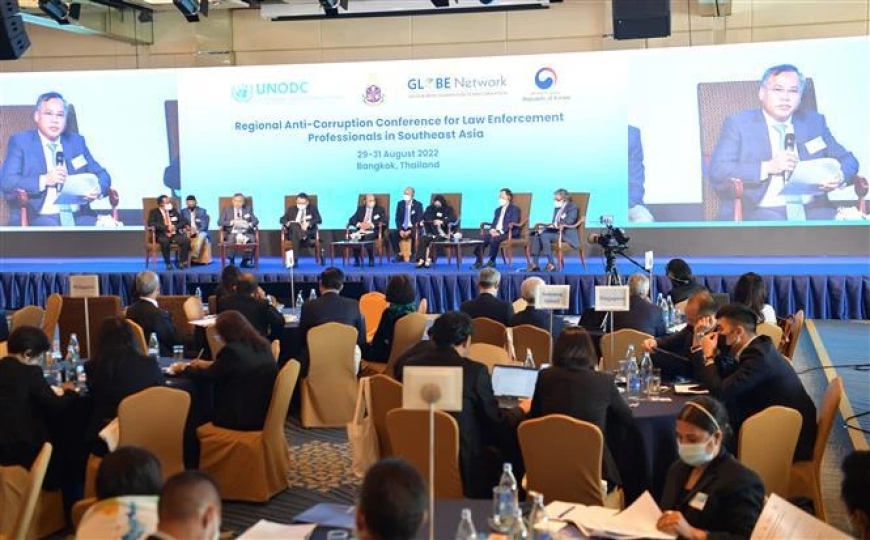Southeast Asia Public Support Anti-Corruption Conference held in Bangkok
Southeast Asia Public Support Anti-Corruption Conference held in Bangkok

Southeast Asia has emerged as a leading example of public-initiated anti-corruption initiatives, as jurists and academics highlighted at the recent Southeast Asia Anti-Corruption Innovations Conference in Bangkok.
The conference, held on June 7, aims to share views on innovative strategies to promote regional integrity and good governance. Experts emphasized the importance of empowering people to take action against corruption.
Technology and community-based strategies have significantly contributed to anti-corruption efforts in the region. Digital platforms that track government spending and enable citizens to report fraudulent activity are key in this fight.
According to participants, the region has seen a significant increase in such initiatives as it strives to build a corruption-free society with honesty and transparency.
Harvard Law School professor Matthew C Stephenson emphasized the importance of public participation in reporting suspicious activity and fostering a culture of integrity. He noted that these efforts are essential in building a strong support system for anti-corruption measures.
Stephenson, who specializes in the political economy of public law and anti-corruption law, pointed out that Southeast Asia's anti-corruption processes are driven by the urgent need for economic growth and social development. Examples of countries with strict anti-bribery regulations include Indonesia; He cited Malaysia and the Philippines.
In Malaysia, The Anti-Corruption Commission uses advanced technologies such as blockchain and artificial intelligence to monitor financial transactions and detect irregularities. These efforts are significant; High profile arrests and gradual improvement in public confidence.
Despite multiple challenges and a lack of public trust, Indonesia's Anti-Corruption Commission (KPK) and the Philippines' Office of the Ombudsman have strong procedures and consistent enforcement to investigate and prosecute corrupt officials.
Stephenson stressed that corruption can be eradicated if the community is motivated to fight it, and stakeholders are actively involved in the effort.
Annica Wythes, head of the Anti-Corruption Center for Southeast Asia and the Pacific at the United Nations Office on Drugs and Crime, highlighted the region's long history of corruption, which has affected the economy and politics, the Bangkok Post reported.
“Facilitating international cooperation by addressing legislative and operational barriers and ensuring clarity in cooperation procedures is critical.
What's Your Reaction?















































































